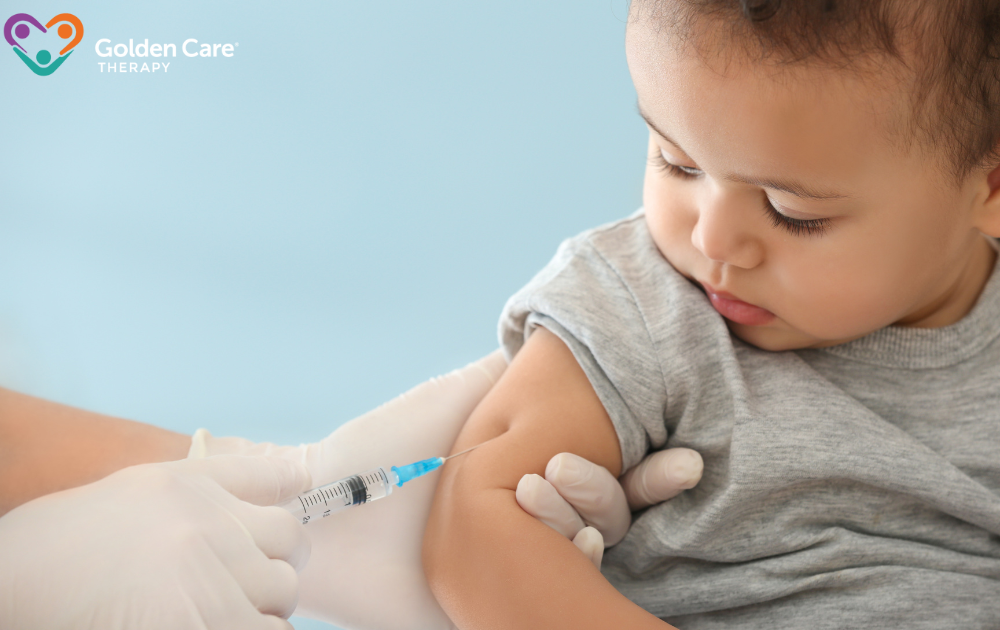For years, the idea that vaccines could cause autism has stirred fear and confusion among many parents. Despite overwhelming scientific evidence showing no link between the two, this myth continues circulating.
It’s easy to see why misinformation can spread so quickly, especially when the health of children is at stake. Understanding the truth behind vaccines and autism can ease concerns and help protect public health.
Let’s explore why the vaccine-autism connection is a myth and how science has worked to debunk it.
Origins of the Controversy

The contentious debate surrounding vaccines and autism traces back to a pivotal moment in 1998.
A study published that year put forth the hypothesis that a specific vaccine, the MMR (measles-mumps-rubella) vaccine, could be linked to the development of autism spectrum disorder. This initial research stirred significant concern and triggered a wave of further investigations into the potential connection between vaccines and autism.
However, subsequent analyses and inquiries into the study uncovered serious flaws and deliberate falsification of data by the lead researcher, Dr. Andrew Wakefield.
Several subsequent studies conducted by reputable researchers contradicted Wakefield’s claims and debunked the alleged association between the MMR vaccine and autism. For example, studies led by Brent Taylor, Madsen, and various other researchers during the late 1990s and early 2000s found no evidence to support the theory proposed by Wakefield.
The publications from Wakefield in 1998 and 2002 were deemed severely flawed, with elements of fraudulence and scientific misconduct.
The discrediting of the MMR vaccine-autism link underscores the importance of relying on scientifically sound research and evidence-based findings when exploring complex issues such as the potential impact of vaccines on autism spectrum disorder.
Debunking the Myth
As the debate surrounding vaccines and autism continues to persist, it is essential to address and debunk some of the common myths associated with this controversial topic.
Two prevalent myths have sparked concern and speculation among parents and caregivers. Let’s look at what these are.
Thimerosal and Autism
At the center of the vaccine-autism controversy, concerns initially shifted from the Measles, Mumps, and Rubella (MMR) vaccine to thimerosal, a preservative that contains mercury and was commonly used in children’s vaccines.
While the presence of mercury in thimerosal raised alarms due to its known toxicity, extensive research has consistently refuted any link between thimerosal and autism.
The Centers for Disease Control and Prevention (CDC), through in-depth investigations spanning nine different studies, found no conclusive evidence to support the assertion that thimerosal contributes to the development of autism. Despite containing mercury, thimerosal in childhood vaccines has not been identified as a causative factor for autism spectrum disorder.
Multiple Vaccines and Autism Risk

Another misconception that has fueled vaccine hesitancy is the belief that the cumulative effect of receiving multiple vaccines, particularly in the first two years of life, may elevate the odds of having a child with autism.
It is true that children typically receive multiple vaccinations in their early years, with as many as 25 shots administered before the age of 2.
However, extensive research and meta-analysis have unequivocally concluded that the administration of various vaccines, including those containing thimerosal or the MMR vaccine, does not correlate with an increased likelihood of developing autism or autism spectrum disorder.
The aggregated scientific evidence consistently demonstrates that the routine childhood immunization schedule does not pose a heightened risk for autism.
To dispel these myths and misconceptions surrounding vaccines and their alleged association with autism, we have to emphasize the overwhelming scientific consensus that vaccinations are a safe and effective means of preventing infectious diseases without causing or exacerbating neurodevelopmental conditions such as autism.
Parents and caregivers can make informed decisions about immunization based on reliable evidence and expert guidance, ensuring the health and well-being of their children and the community at large.
Scientific Findings
The Institute of Medicine’s Immunization Safety Review Committee released a pivotal report in 2004 that addressed the purported link between vaccines and autism. This comprehensive review, encompassing both published and unpublished studies, concluded that there is no substantiated evidence supporting a connection between vaccines and autism.
The report was instrumental in dispelling myths and misconceptions surrounding this contentious issue.
Moreover, a meta-analysis of 10 studies with nearly 1.2 million children being observed revealed no association between vaccines and autism, further solidifying the consensus within the scientific community that vaccines do not contribute to the development of autism spectrum disorder.
These scientific findings, including the influential Institute of Medicine report and the largest study on vaccines and autism, underscore the importance of evidence-based research in addressing public health concerns and countering misinformation.
Flawed Studies
One of the most infamous instances of flawed research in autism and vaccines is the work conducted by Dr. Andrew Wakefield. In 1998, Wakefield and his colleagues published a study that suggested a connection between the MMR (measles-mumps-rubella) vaccine and autism. This study sparked widespread fear and concern among parents regarding the safety of vaccines.
However, further scrutiny and investigations into Wakefield’s research uncovered significant issues with the study, revealing instances of scientific misconduct and deliberate fraud.
Subsequent scientific studies failed to find any evidence supporting a link between the MMR vaccine and autism, discrediting Wakefield’s claims and highlighting the importance of rigorous scientific scrutiny in vaccine research.
The flawed nature of vaccine-autism claims is further exemplified by the critical flaws identified in studies that purported to establish a linkage between vaccines and autism. Both the 1998 and 2002 studies associated with Wakefield’s research have been discredited due to scientific misconduct and fraudulent aspects.
These studies, which served as a foundation for the vaccine-autism controversy, lacked scientific rigor and integrity, ultimately contributing to a wave of misinformation and unwarranted fear surrounding vaccines.
The scientific community has unequivocally debunked such claims, emphasizing the importance of evidence-based research and transparent methodology in evaluating the safety and efficacy of vaccines.
Early Signs and Discrediting Vaccines

Examining the connection between vaccines and autism requires the analysis of early signs and studies that have discredited the notion that vaccines are one of the causes of autism. By delving into the early indications and thorough research, a clearer understanding can be attained regarding this controversial subject.
In-depth analysis of videos capturing children at 2 to 3 months of age has provided valuable insights into the development of autism. These recordings showed no evidence linking the MMR vaccine to the initial symptoms of autism.
Such findings support the concept that very subtle symptoms of autism may be present in early infancy, well before the administration of vaccines. This emphasizes the need to look beyond vaccinations when exploring the origins and triggers of autism spectrum disorder.
These early signs and findings from reputable studies prove that the vaccine-autism controversy is not supported by scientific evidence.
As such, parents and caregivers of autistic individuals, as well as autistic individuals themselves, should rely on factual information and validated research when making informed decisions about vaccines and their potential impact on autism. If you’re seeking personalized support, ABA therapy in New Jersey, Indiana, Georgia, and New York can offer tailored approaches to meet the needs of your child.At Golden Care Therapy, we are committed to helping you navigate your child’s unique journey. Reach out to us today to learn how our team can provide compassionate, expert ABA therapy that makes a difference. Contact us now to discuss how we can support you and your family!
Sources:
https://www.chop.edu/vaccine-education-center/vaccine-safety/vaccines-and-other-conditions/autism



